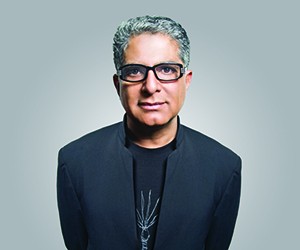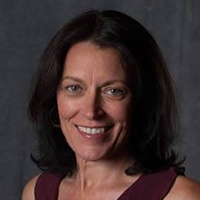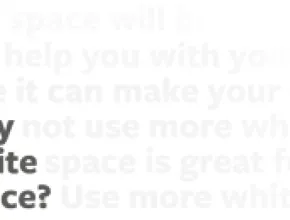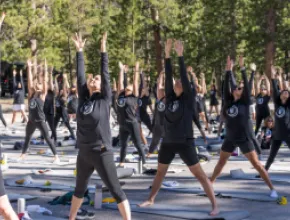It was a welcome oasis of serenity below the hectic pace of the huge tradeshow on the floor above. Roughly 20 of us had trickled in, vowing to take a 30-minute break from our busy appointment schedule to “Be Well,” as the aptly named lounge, filled with candles and trickling fountains, professed. Many of us were new to mindfulness meditation, wondering how we could manage to zero in mentally on anything but the amount of business and networking at hand over the next few days. Though as we closed our eyes and purposefully took in the words of our trainer—hyperfocusing on one breath in and one breath out, paying close attention to the rise and fall of our chests—the sense of calm throughout the room became contagious. We were learning to let go of the inherent struggle to juggle a million messages, thoughts and tasks, and just joyfully be—in the moment. And it was liberating.
As the principles of well-being become increasingly prevalent in our society, they are also finding a restful place in the meetings industry and the hospitality industry overall. Major shows like IMEX (its Be Well Lounge, spearheaded by Lee Papa, described above) and PCMA are staging initiatives to teach planners how to incorporate wellness into their daily lives and into meetings agendas. It often begins with mindfulness meditation, learning to be in the moment—the one moment.
Monotasking is not a word that’s ever associated with event planning, let alone anyone’s life nowadays. It has become our nature to multitask, or at least attempt to, with thousands of stimuli pinging us and vying for our attention from the moment we open our eyes in the morning. Yet can anyone, including meeting planners—a position that has been in the top 10 on the Forbes’ list of the most stressful jobs for three years, right up there with police officers and firefighters—keep it together without multitasking?
The Power of One
Ask Deepak Chopra, world-renowned physician, New York Times best-selling author and wellness expert, and the answer is a resounding “yes”—being mindful and focused on one task, one moment, is the key to being less stressed, more productive and ultimately more content.
“If you have a mindful, healthy approach, you’re less likely to be anxious,” Chopra told Meetings Today. “There’s a lot of anxiety that comes with event planning and what can go wrong, so you’re less likely to focus on that. It helps you stay centered in the moment, which means more efficiency.”
Multitasking gets worse with practice, Chopra wryly noted.
“I tell event planners it’s very important not to succumb to the temptation of multitasking,” he said. “It’s impossible for a conscious mind to do more than one thing at a time. Your subconscious mind does that, so you cannot worry about that. So when you’re planning anything or doing anything, focus on it and be mindful about it.”
Meanwhile, mindfulness meditation in a group meeting, whether at the office or at larger conferences, can be a game-changer.
“I have been doing mindfulness meditation practices before meetings for the last three decades or more, and what I have found is everybody doing the practice together in some way starts to open up to each other,” he said. “They have a sense of bonding in the beginning just as a result of their practice, but what it also does is open the window to more deep listening, to more mental clarity, to less reactivity and to more engagement.”
For that very reason, Chopra became involved with Stay Well Meetings at MGM Grand Las Vegas, launched in mid-2014 with the help of Delos, the pioneer of Wellness Real Estate. At the beginning of all sessions of the Stay Well Meetings program, attendees are treated to a video meditation with Chopra.
“The guided meditation is a good way to start the meeting with what I call restful alertness, and then the fact that the air is fresh and purified and not stale keeps people alert and keeps people relaxed,” he said.
The successful program is designed around healthy environments and nutritious food, as well as meditation. The esteemed Cleveland Clinic provides nutritional direction.
PageBreak
Chopra is also involved in another interesting initiative: Lake Nona in Orlando, designed to be a model community of well-being in every aspect of the word.
“Well-being today has many components,” Chopra said, pointing to physical well-being, including good sleep, stress management, daily movement, nutrition and emotional contentment, along with career, social, financial and community well-being.
Lake Nona recently staged the Impact Forum, a gathering of thought leaders in the topics of medicine and wellness, including Chopra, who presented two sessions: The Future of Well-Being and the Internet of Well-Being. Guests of the conference and residents of Lake Nona were also treated to an outdoor guided meditation by Chopra, and he announced a customized Lake Nona version of his popular well-being platform, Jiyo. The app is a personalized companion that encourages lifestyle modification and offers expert insights on topics such as exercise, nutrition, sleep and stress. It has intuitive technology to analyze users’ behavior and make healthy suggestions.
Center of Attention
Meanwhile, Chopra’s trademark brand of wellness can be customized for corporate groups at The Chopra Center at Omni La Costa Resort & Spa in Carlsbad, Calif.
The renowned center is dedicated to increasing awareness and education of the traditions of meditation, Ayurveda and yoga to improve the health and well-being of body, mind and spirit.
Its customized approach to supporting corporate groups is what makes the programs unique, according to Chopra. The Chopra Center designs programs and education specific to the needs of each workplace and organization, incorporating meditation, yoga and other mind-body balancing techniques. Teams and groups can also be easily integrated into the larger live events, such as Weekend Within and Journey Into Healing.
“Participants have reported decreased stress and anxiety and increased creativity, self-awareness, productivity and mental strength and focus,” Chopra said.
Additionally, a recent study done at The Chopra Center suggests that regular meditation offers the same health benefits of taking a vacation, known as the “vacation effect”—increased feelings of relaxation and well-being, a meaningful lift in mood and decreased levels of stress, with long-term results.
That would make anyone, meeting planners and attendees included, smile from ear to ear, which leads Chopra to another important point of well-being.
“Joy is our natural state and the experience of laughter is biologically very good for you,” he said. “You secrete a lot of oxytocin and dopamine, and these are not only molecules that create euphoria, but they also modulate and fine-tune the immune system.”
We can probably all “om” to that.







